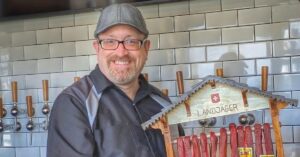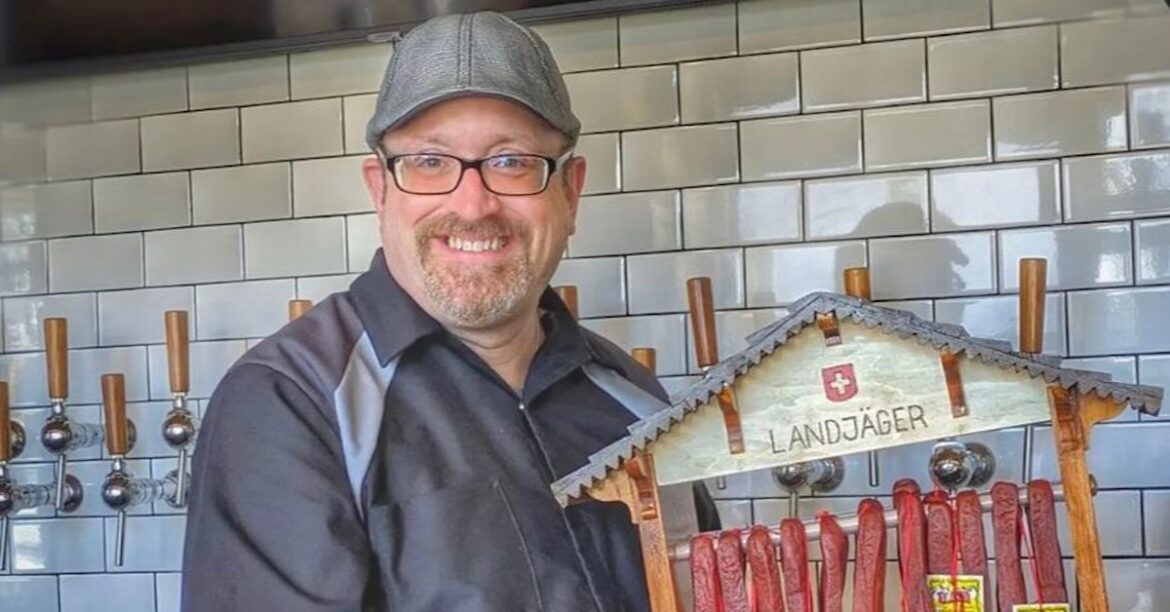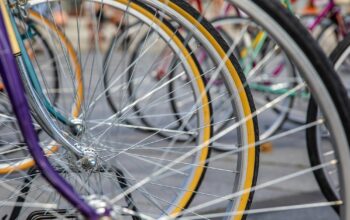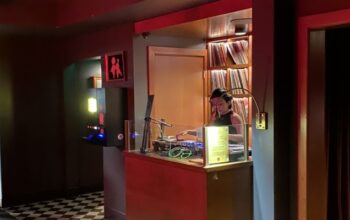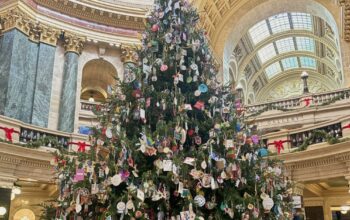Tim Virnig is the bar leader at Garth’s Brew Bar on Monroe Street. As an alumnus of UW–Madison, he offers a compelling perspective on the challenges and responsibilities of operating a locally owned business in an increasingly challenging market. In relation to running the brew bar, Virnig underscores the importance of offering exceptional products, fostering a welcoming environment, and earning the loyalty of a diverse community. Through his thoughtful insights, Virnig highlights small businesses' broader role in shaping vibrant neighborhoods and the collective effort required to ensure they continue to thrive.
What do you think is the biggest challenge our community faces?
I think we’re competing in Madison with a lot of options, and the average person’s family has a limited budget due to the rising costs of social and recreational activities. When you’re competing for a tiny portion of the market and there are many options, it can be challenging to attract customers. In order to do that, you have to differentiate yourself: first,by offering a quality product that people want; second, by having an environment that is comfortable, where people will feel welcome. Third, you have employees who are going to provide great service to those people.
When they spend their hard-earned money, they feel they’re getting good value for it. And that’s a challenge as a restaurant or bar business owner. We’ve tried to focus first on the community of Monroe Street, so that we are a welcoming place for people in the community to come, whether that’s older adults, grad students or students from UW, people that are in town for sporting events.
Then finally, for the beer geeks, as Garth calls them, we try to offer these really high-quality beer products that nobody else has. You can go to any bar in Madison and get a Spotted Cow. That’s a very popular beer. We don’t have a Spotted Cow. Why? Well, because everyone else has Spotted Cow, and there are a lot of other really good beers. Sometimes people come in and they’ll say, I don’t really know beer, but I like Spotted Cow. It’s our job as employees, as beer-tenders, to help them find something they’ll like. That may stretch their expectations a bit, but we’ll do our best to find something they’ll really enjoy. I always call it that I’m trying to help every guest to find “their next favorite beer.”
What do you wish people in our community understood better?
Some people in the community take for granted that locally owned businesses will always be around, and they don’t feel like they necessarily have to be a part of supporting them. That’s not actually true—restaurants, bars, and small local businesses close all the time because there isn’t enough support. Now, that isn’t necessarily one individual's fault, because they may not visit a business enough. However, if a community isn’t willing to support small local businesses, they will disappear. That’s happened in other industries. If people stop going to a small, locally owned, family-run hardware store because they want to go to Home Depot? Yes, Home Depot may have a bigger selection. The price might be slightly lower, but it’s not a locally owned business. And I think that people in Madison always speak up to support businesses. They do a pretty good job of supporting local businesses with their spending. But when it comes down to it, it’s often just a matter of price. I do understand, because I’m no different than anybody else; you have a limited budget, and the cost of everything goes up, so you have less discretionary spending. [But] I think that people in the community need to understand that if they truly value local businesses, they should support those owned by people who live in the community. They have to be willing to support those businesses by spending money at them whenever they can, because otherwise, they won’t be around. And there will come a point where people will ask what happened to the corner store? What happened to the family-run hardware store? Well, they’re gone because they were replaced by Walmart, Amazon, Home Depot, whatever.
What is one change that would make life better for people in our community?
I think the change that I would make would be to really to diversify the type of businesses that are accessible easily within every community in the city. So, ideally, that would be in creating a more walkable environment. But Madison is constructed in such a way that zoning restricts where businesses are, so there are communities that are just housing—single-family housing or multi-unit housing—and those are separated from businesses, and that’s just because of the way Madison was built. It initially was focused and concentrated in the downtown Capital Square area. And then, as these outside communities were established, they didn’t have many businesses. Where we’re located is a bit of an outlier because it has businesses and stores of all types. To improve it, the city should focus on that and make it true for all areas of Madison. It’s not an easy fix, and, of course, it still relies on people driving. But the good news is that because Madison isn’t so large, it isn’t hard to get to an area where you can park.
What in our community gives you hope?
Deep down, people in our communities still believe that supporting local businesses is worth their hard-earned money. People in our neighborhood here on Monroe Street definitely support us. They come in all the time and tell us that they live nearby, that they just moved to the Vilas neighborhood – and they walk up here and want to come here more often because they think it’s great that a business like this exists. That gives me hope that local businesses can make it. I’m looking out the window right now, and I can see a business that’s been open since I was a child – it’s been around forever, which says something about Madison’s support for businesses like that.
This interview has been edited for brevity and clarity.
